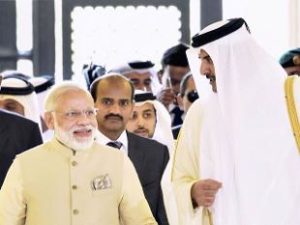 Indian economy is less vulnerable to external shocks as it is mainly driven by household consumption and government spending, and not dependent on hot money which can move out quickly, Standard & Poor’s Rating Services said today.
Indian economy is less vulnerable to external shocks as it is mainly driven by household consumption and government spending, and not dependent on hot money which can move out quickly, Standard & Poor’s Rating Services said today.
The US-based rating agency expects the current account deficit (CAD), which is the difference between inflow and outflow of foreign exchange, to remain at a modest level of 1.4 per cent at the end of current fiscal and would continue at similar level till 2018.
“We see India as having limited vulnerability to external economic or financial shocks. This is because growth in the economy is mainly driven by domestic factors, such as household consumption and government spending.
“At the same time this is a country that has low reliance on external savings to fund its growth. In other words, the banks are mainly deposit funded and don’t rely on wholesale funding to grow their loan books,” S&P Rating Services India Sovereign Analyst Kyran Curry told PTI.
He said India’s capital markets are diversified and deep enough for companies to raise funding.
“Another favourable aspect of India external settings is that it is generally not subject to hot money inflows that can turn into outflows with shifts in investor sentiment. As such we see the external risks for India to be relatively contained,” Curry said.
He said while export growth may be disappointing, the current account deficit likely to be a modest 1.4 per cent in 2015, with similar levels through 2018.
“Our forecasts are partly informed by our view of increased monetary credibility, which dampens the demand for monetary gold imports. In addition, we expect India to fund this deficit mostly with non-debt, creating inflows,” Curry added.
The CAD in the first half of current fiscal stood at 1.4 per cent of GDP, lower than 1.8 per cent in the same period last fiscal. For full 2014-15 fiscal, the CAD stood at 1.3 per cent of GDP.
Source: http://economictimes.indiatimes.com/articleshow/50727133.cms





